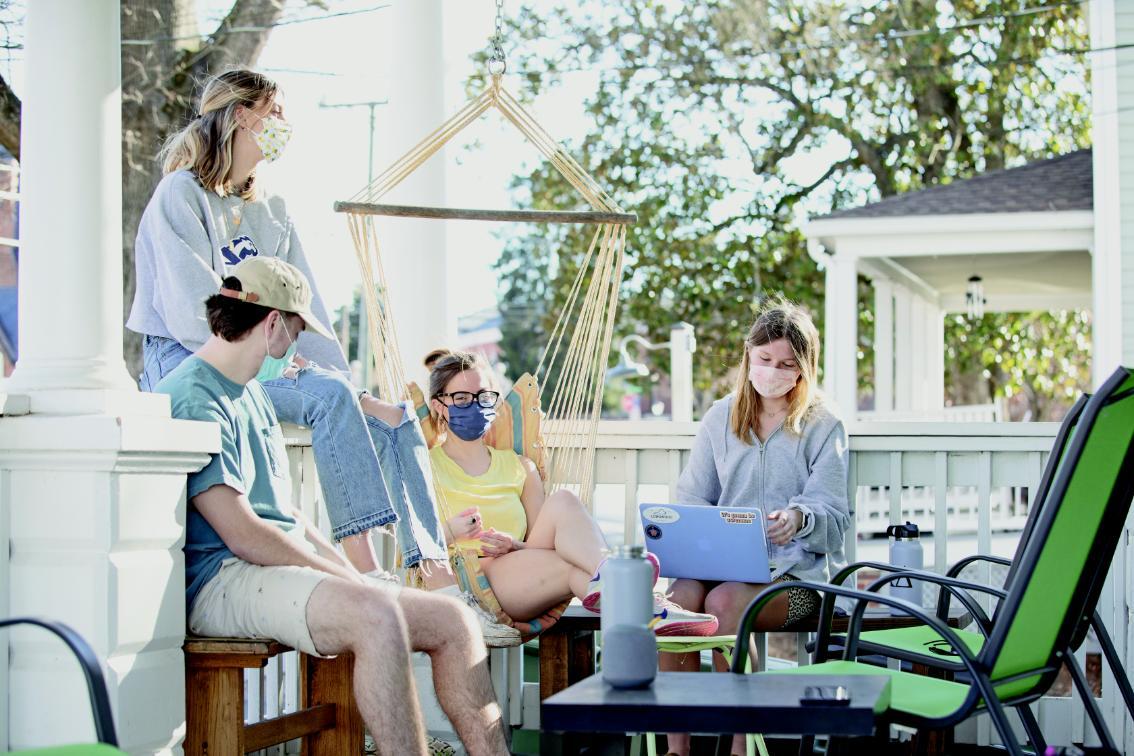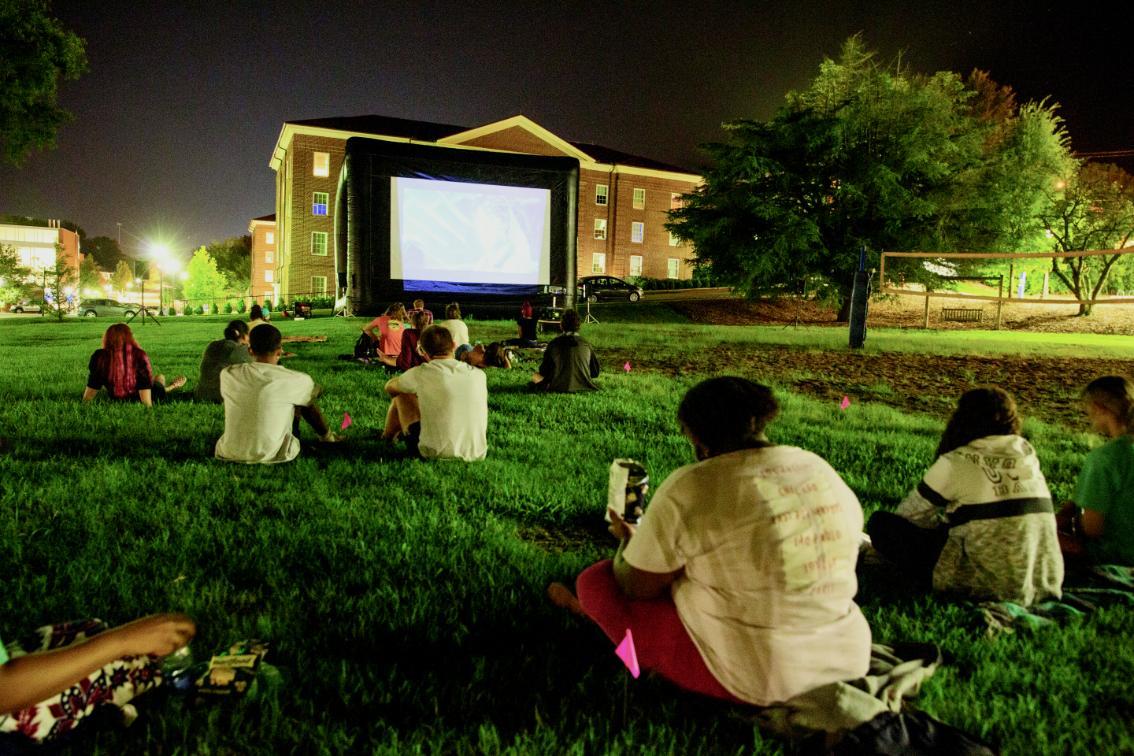
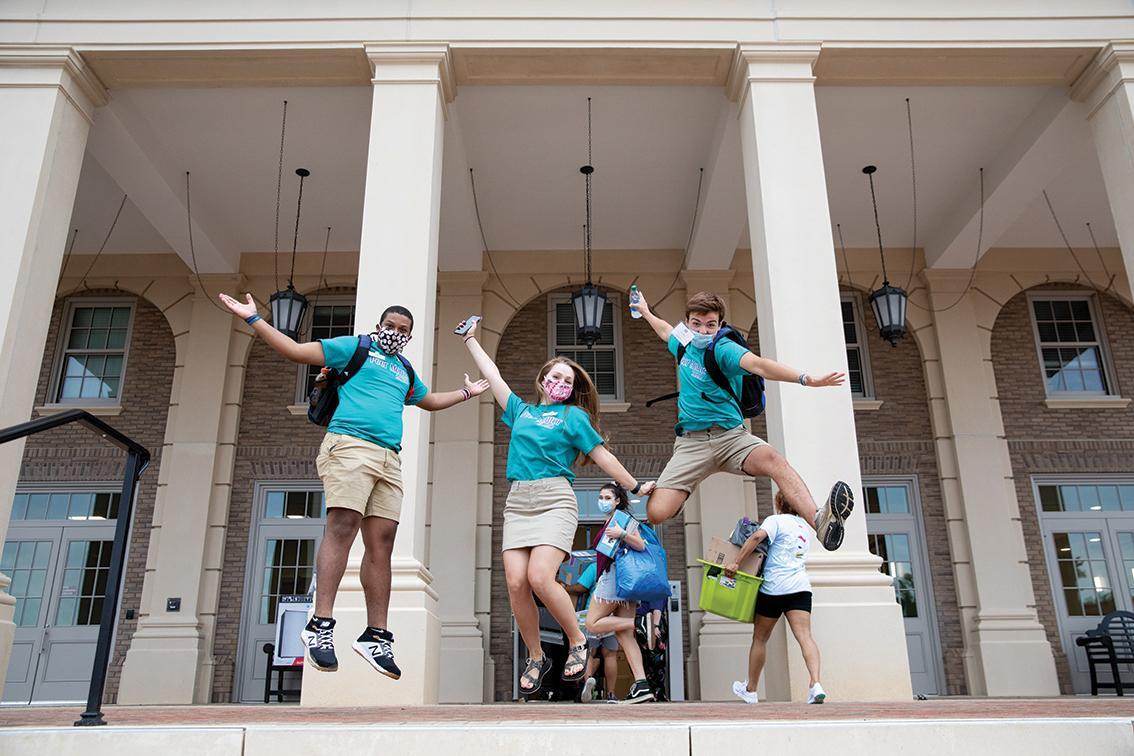
The spring of 2020 was a hard one. In March, like universities all across America, Longwood sent students home to finish the semester’s classes online. Just finishing the year profoundly challenged students, faculty and staff.
But in early summer, President W. Taylor Reveley IV sent a clear message: In-person learning is central to Longwood’s mission, and we are committed to making it work in the fall.
The commitment made Longwood an outlier. Many colleges adopted a wait-and-see approach during the 2020-21 academic year. Others started the fall semester fully online. Others tried to be in person and failed.
Longwood, by contrast, offered more than 75 percent of classes fully in person or with in-person components—a percentage as high or higher than at any other Virginia public university. Students moved into residence halls on time. Extracurricular life continued, with precautions. Fire pits and additional outdoor gathering spaces were added to campus to allow for safer socializing.
Longwood asked students to do their part for themselves and the community by wearing masks and social distancing.
They did. An extensive contact-tracing system was implemented to limit spread, along with quarantine support to ensure students stayed on track emotionally and academically if they had to isolate. Faculty adjusted to new classroom spaces and accommodated students who had to be away. The University Health Center prepared to test and support students during an unusual year.
It wasn’t always easy. The academic, mental health, emotional and financial challenges for many at Longwood were real, as they have been for this whole generation of college students.
But despite the changed routines of campus life, there was wide agreement that being together mattered.
We talked to students, faculty and staff from across campus about why that was, what their experiences were like during this unique year and what they are looking forward to as we return next fall.
 Photos from 12 months together
Photos from 12 months together

Micah Clark ’24
Freshman class president
Major: Political science
When it really felt like college
The day I moved in, a few people from my Peer Mentor group went to D-Hall. There were so many fresh faces. I had been with the same small number of people since kindergarten, so stepping out and seeing all new people was really monumental. It was different and big to me. It made me thankful that I went to Longwood instead of a place where people like me started their first semester online.
The struggle is real
Some of my classes have been online or had portions online, and, honestly, it was tough. I’m a very hands-on learner, so I really need to be in the classroom. I’ve made it work, but it’s a struggle sometimes. I appreciate my in-person classes a lot more.
Looking forward to traditions
I am really looking forward to experiencing Color Wars. I’ve seen pictures and other students have told me about it. It genuinely looks like a good time. As freshmen, we are excited to experience these traditions in their real dynamic. It’s more exciting to look forward to participating in something in the future rather than dwelling on what we couldn’t have this year.

Taylor Jennings ’21
Major: Criminology and criminal justice
A safe place that cares
It was a big relief to have some kind of normalcy. Coming back made a lot of us feel like Longwood really cared about us. We needed that safe place to have somewhat of a normal routine and a place of support for those of us who were really struggling mentally. A lot of us were thankful Longwood prioritized students being here.
A community effort
It’s hard because I got to spend three years with all of our traditions and CHI Walks and all the fun stuff that we do as a community. It’s hard for freshmen and transfer students. It’s going to be difficult for them to get into it and get as excited as those of us who got to experience that. The spirit is definitely there—it will just take more initiative and work to keep it going strong. But we know how important it is. It’s the thing that’s kept us here.
The pandemic perspective: take nothing for granted
The last 12 months changed my entire perception of everything. This fall, I told myself that I wouldn’t take a single day in Farmville for granted. This is my last year, and, yes, there are guidelines that we have to follow, but I’ve been making the best of it.
Our spirit kept us on campus
If you step back, there are students at other universities who haven’t been as fortunate to return to campus or stay in person. It’s the spirit of the student body at a small university where everyone is just on the same page. When we had a spike in cases on campus, it really was everyone talking to their friends saying, ‘Hey, let’s get it together here,’ that made a difference and kept us here. We really had to lean on that and come together as one family.

Dr. Karen Feathers
Assistant professor of special education
A big adjustment
Last March we left in the middle of the semester, and students had a hard time adjusting to being away from their social and academic support networks. Going into the fall, it was really important to me that as many of my students as possible had access to in-person learning.
Giving students credit
I feel like we’ve had to rely on our character a lot over the past year. We all had to stretch and learn things that we hadn’t known before, but the qualities that bind us together were on full display. Everyone asks each other, ‘What can I do to help?’ Beyond that, I’m so impressed that our students have taken responsibility in public and in the classroom to follow the guidelines that allow us to be here. Not every university can say that about their student body, and ours deserves a lot of praise for the sacrifices they have collectively made.

Dr. Leslie Straker
Senior lecturer in environmental science
Minimizing disruption
Especially in labs, face-to-face classes mean everything. One of the priorities of the department was to do whatever we could to not disrupt the experience of students in labs, even though it was very difficult to find online lab exercises. That meant we had to get creative. We had to design lots of different activities and work through whatever problems arose.
Real campus camaraderie
We talk a lot about the camaraderie and environment here, and it’s easy to dismiss as just talk for people outside of Longwood. My wife is a professor at a different university, and the problems that she describes just aren’t present here. We all pulled together, but the students were very, very understanding and willing to work hard. I’ve never had a negative experience in terms of a student being understanding of changing circumstances.
The unspoken bargain: bending not breaking
It’s almost been an unspoken bargain between professor and student this past year: We will both be flexible and approach this year with understanding, and we’ll make it. If I have to move a quiz, I’m going to do it in your favor. A student’s internet connection is terrible at home, so I allow them to complete work asynchronously. I’ve designed a lab for online students that isn’t working very well so students complete a different assignment. We all work together, and that’s why we’ve made it this far.

Moe Bates
Director of residential programs
Togetherness makes the difference
With the kind of work we do in residential life, students—especially those who are struggling—need the option available to connect with peers and faculty and staff, so it was important to have in-person options. I remember one student over the summer was trying to build relationships with classmates online, and the connections just weren’t very substantive. But once they got on campus and started connecting in person, whether it be in a formal way through an organization or just passing by someone in the hallway, it became much more real.
Being on the front lines
Our staff and student and professional staff live in residence halls with students. They’re on the front lines of helping students have a traditional college experience but also maintaining safety for everyone. It’s been a challenge, but the effort is worth it.
Pulling together, not pushing back
By and large, Longwood students are interested in supporting each other. When the guidelines came down about masks and social distancing, I talked to colleagues at other universities who were having real issues with students not wearing masks or pushing back against the regulations. We’ve hardly had any of that—everyone knows that it’s important to look out for each other.

Allyson Buchanan ’24
Major: Psychology
Online vs. in-person learning
It’s really hard for students to learn online because we’ve been in a classroom our entire lives. Last semester I had mostly online classes, but this semester I’m mostly in person, and the difference is huge. I’ve made insane connections with my professors. Dr. Steven Faulkner has even gotten me to appreciate history— even if I still don’t really like it!
Isolated but not alone
I was so exhausted [when I had to isolate], but the staff there was so supportive. Dr. Jennifer Green really took care of me to make sure I had extra time on assignments or whatever other accommodations I needed. And the CNAs were so nice—if you called them for anything, they were on it.
High hopes for next year
I feel like freshmen really missed out on Oktoberfest. From the moment you hear about the university, that’s one of the events everyone talks about. I’m looking forward to hopefully experiencing it next year.

Todd Dyer ’92
Women’s soccer coach
You don’t know what you’ve got ’til it’s gone
You don’t realize how important the group dynamic is with a team until it’s taken away. Last March when we went home, there was such a void in terms of that in-person contact, that togetherness. You feel lost, and you’re searching for what you had. That was a big hurdle emotionally for us.
Seeing faces again
We played USC Upstate for the first game this semester. As it was about to start, it dawned on me that this was the first time I had seen all of the players’ faces since last March. It hit me. It was hard to understand how much that means in terms of that personal connection.
When Covid hits home
One of the most cautious players on the team in terms of the health guidelines came back from the holidays, and everyone could tell she was just beaten up emotionally. It turns out her entire family had gotten the virus, and she lost a grandparent. I really think it was important for her to be here with her Longwood family, her team family, who love and care about her and were willing to do whatever was necessary to get her through hard times.
The new normal: exceptional
Our normal is going to feel exceptional because I know we’ll never take it for granted again. Our history, our traditions are going to feel even more special because we know what it’s like to lose them.

Madison Hommey ’21
Women’s soccer team member Major: Elementary and middle school math education
Connecting with freshmen
I’ve always taken pride and care to ensure that our freshmen feel like part of the team—having conversations, sitting down with them, having meals with them. This year that was a little bit different. Over the summer, we would Face- Time a lot and talk about the challenges of the season. When we got here, we’d try to hang out in small groups rather than as one large team like we’re used to. So it was difficult, but we’re managing to still come together as one team.
A foundation to build on
Upperclassmen definitely feel the responsibility to carry our traditions and community forward. It’s been encouraging to see the efforts people go to to see that happen. At the Student-Athlete Advisory Committee, we’ve worked hard to lay foundations for students to build on when we open things back up. Everyone’s been so creative, like giving away scarves even though there was no G.A.M.E. this year. That type of thing builds momentum for the future.
Picturing Longwood post-Covid
I’m looking forward to having a normal season and seeing large groups of students on campus again. I’d love to just sit out at the dancing fountains at a picnic table with some friends and have a random person walk up and give hugs. That would be perfect.
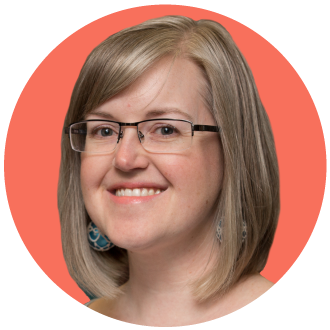
Jennifer Beach
Research and instructional services librarian
Creating a comfort zone
From the library’s perspective, what mattered most was that we gave students options so they could interact with the library in the way they felt most comfortable. We opened up our services to telephone calls, Zoom meetings, text messages and socially distanced in-person meetings. We’ve changed the way you can check out books—now you have the option to do it completely online. We changed the rules for our study rooms so students with online classes could reserve them and attend class with a good internet connection. Anything that would help.
Zoom-ing to the rescue
One of my main duties is instructing students on how to do research. In a normal semester, I meet face-to-face with 45 to 50 classes, and that’s not possible this year. So I’m having fewer touch points, and I worry that students don’t know how to find us when they need us. Zoom has been great for that—we can usually jump online really quickly to answer questions or help find a resource.
Is that you?
I realized that I learn people’s faces especially by recognizing their nose and mouth. It’s much harder to recognize people when I can only see their eyes!
A caring community
I don’t think the community or camaraderie is missing. That means doing the hard things, but it also means giving each other the room to say things like, ‘I don’t feel safe teaching or learning in person.’ For the people who felt safe to be here and in the classroom and in the library, I’m glad we went to the lengths we did for them. For the people who don’t, I’m glad they have a place at Longwood, too.

Aaron Sims ’17
Admissions and special programs counselor
Campus visits reimagined
Being here really paints a picture of what a prospective student’s experience could be at Longwood. It lets them imagine what the next four years of their life could look like, and that’s really important. We typically have some really huge open houses where hundreds of students tour campus and meet us. All of that had to go virtual, so we adapted to having lots of small groups on campus with strict guidelines.
Extraordinary times, extraordinary teamwork
We’ve had to get creative. So much of what we do involves other departments and people on campus—from professors speaking with prospective students interested in their major to the financial aid office to student success. It’s hard to pull all of those pieces together in a meaningful way when we are spread out. Professors are reaching out to students who indicate an interest in their major on their application. President Reveley has done several large-scale Zoom Q&A sessions with parents. We’ve all had to chip in.
Catering to the ‘customer’
With smaller groups of folks on campus, we can actually cater to their interests better. Everyone feels like they are getting a private visit! Based off who we have in groups, we can line up current students to talk specifically about certain academic programs, clubs or organizations—any aspect of campus life.

Jen Cox
Director of community relations
One call, that’s all
I’m continually amazed by Longwood students’ desire to help. I put out a call for volunteers several times to unload boxes of food at a food pantry, deliver Red Cross meals and to help staff a community vaccination site. Within minutes each time I had all the students I needed.
Hope, relief—and a few tears
Especially seeing the public school teachers and staff, there was such a sense of hope and relief—and even a few tears on faces. It’s been incredibly rewarding helping with contact tracing and the clinics. One couple who both work for Prince Edward County schools were in line and told me that the wife had Covid earlier in the fall, and they didn’t think she’d make it. But here she was in February standing in line to get their second dose and ready to get back to doing what they loved, which is working in schools. What an inspiration.
Contact tracing with a dose of empathy
I was part of a team that did contact tracing on campus, and I think a lot of people don’t realize the level of detail it takes. These aren’t quick calls. Students are sometimes scared and need someone to talk to. I give everyone my cell phone number, and a lot of them will text me with questions or their test results. I’m happy to help.

Dr. Adrienne Sudbury
Assistant professor of economics
Missing the action
I was really sad that I missed out on The G.A.M.E. I got incredibly hyped about it when I heard about it, but it got canceled, and I said, ‘Noooo!’
All ears
I monitor performance a lot more closely these days and talk to students if they are late with assignments or grades aren’t where they should be. It’s amazing what you hear from students when you just talk to them. I had one student who didn’t do well on a test because they had a family member in the hospital with Covid and were extraordinarily stressed about it. So we worked through it, but it’s about making that connection with your students.
Small campus support
Everyone at this campus is very participatory and very involved—and interested in how I was doing as a new faculty member. That doesn’t happen at larger universities, and it’s a good feeling to be so supported when you walk into a situation where you’re starting in the middle of a pandemic.

Dr. Chris Kukk
Professor of political science and dean of the Cormier Honors College
Wired for connecting
When we start disconnecting with each other, things really start to unravel. Longwood has been this oasis in a desert of lack of connections, and that allowed our energy to keep going. The wires are still pulsating on campus. It really is the type of student who comes here that has allowed us to do that.
The magic of Longwood
We’re actually bringing in the strongest-ever class next year. Just staying open made a big difference, when other universities were closing or sporadically closing. But we also blew down some invisible walls and have been working really hard to capture the magic of this place for students. I think we were able to do that because everyone came to this work with compassion
Need a lift? Take a Post-it
Everyone at one point in the fall was getting down. So we got old school and covered this big board in our Honors lounge with Post-it notes that had these little affirmations on them, and we told students to take what they needed. They were just little quotes or reminders to brighten their days, but you’d start to see them everywhere you looked: in pockets, taped to the inside of a notebook, used as a bookmark. It was really a reminder to everyone that, hey, we’ve got you.
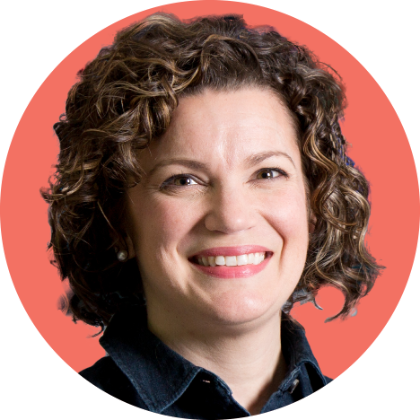
Emiliy Grabiec
Director of education and outreach at the Longwood Center for the Visual Arts
Art to go
We changed our Community Art Workshops to an Art on the Go program over the summer. We put together grab bags of art supplies and activities, and partnered with a bunch of community organizations like Prince Edward schools, YMCA and FACES to get these to families. I just love seeing pictures on social media of kids using the art packs at home!
Strength in numbers
One thing I’ve always loved is how supportive we all are of each other. Everyone is thinking about everyone else all the time—it has a real family feel to it. That’s what makes you strong in times like this.

Dr. Phillip Poplin
Associate professor of mathematics
Spur-of-the-moment learning
Students really need on-on-one interaction with a professor when they are learning mathematics. They need to see me working at the board, get feedback in real time and ask a lot of questions. A lot of times in higher-level mathematics courses where we’re doing a lot of conceptual work, we have these side conversations in the spur of the moment that helps everyone’s understanding of the topic. That gets lost in a virtual setting.
No substitute for togetherness
Missing this year has been something that I think is really important: the opportunity for students in the same major to build connections and a community of their own. From study groups to the math club, these types of things have been much harder to keep going, but they are super important, especially in our department.
Spaced out
The university actually used a modeling program that we teach in the classroom to figure out occupancy limits for classrooms this past summer, and then a few of us went around to every classroom armed with rolls of blue tape and marked everything out. That’s when it really dawned on me just how different the in-person classroom was going to feel.

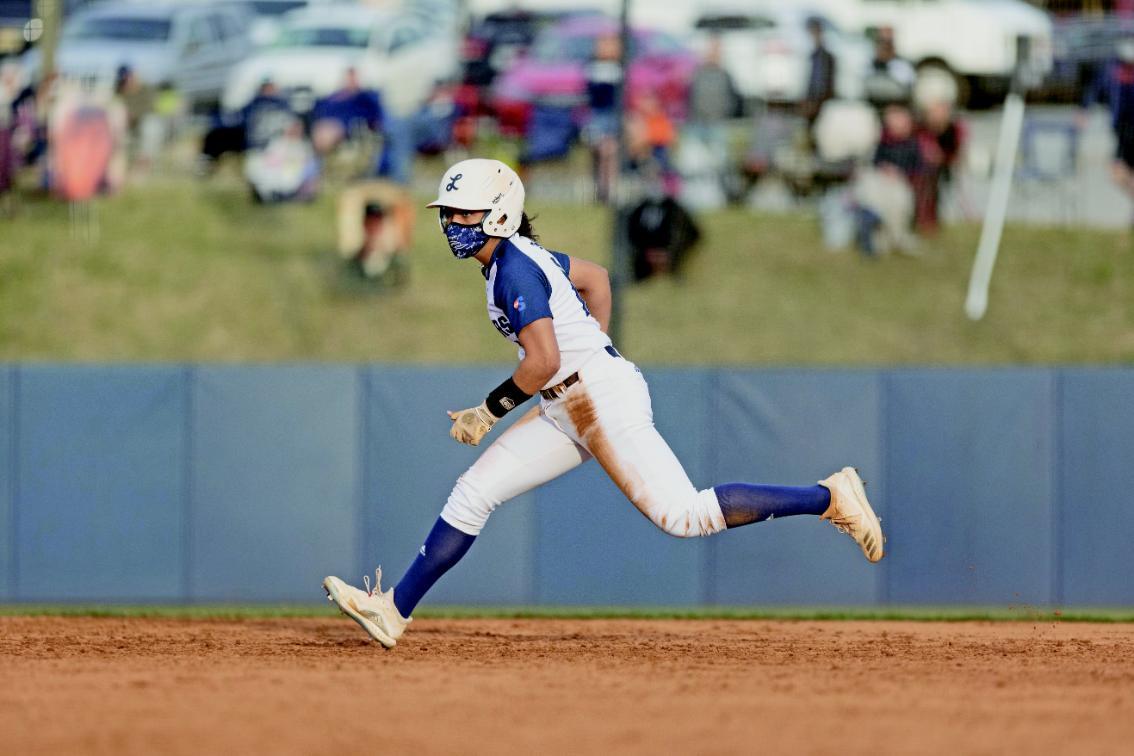

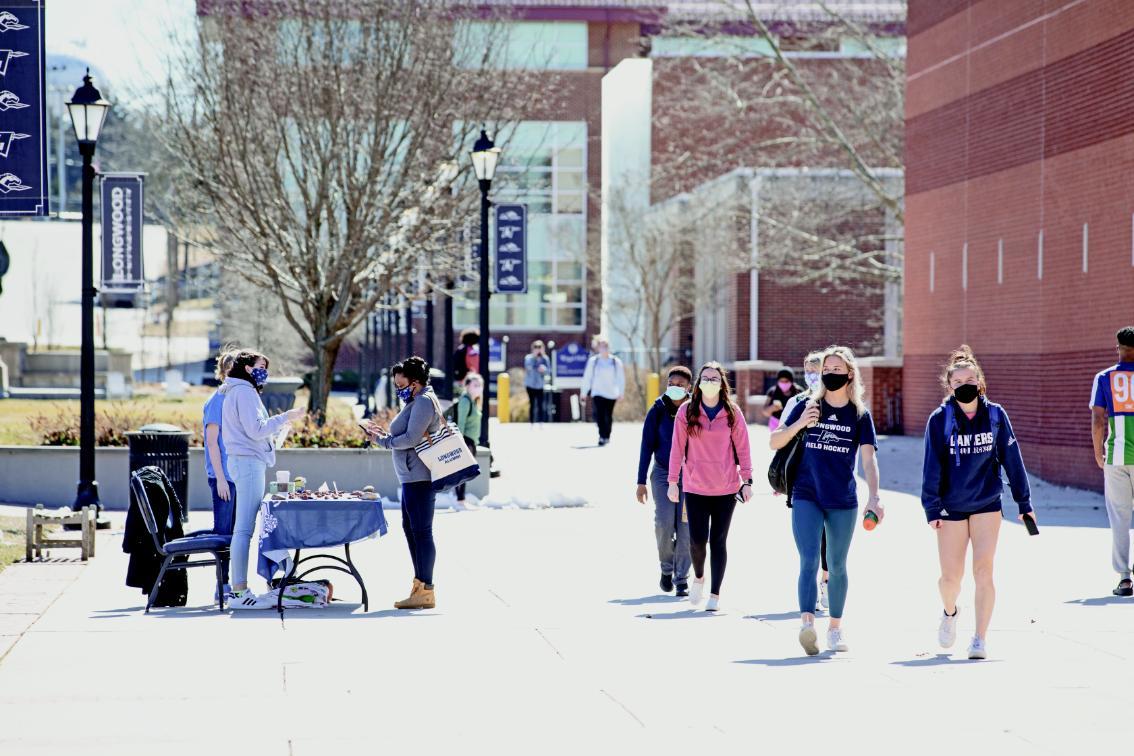
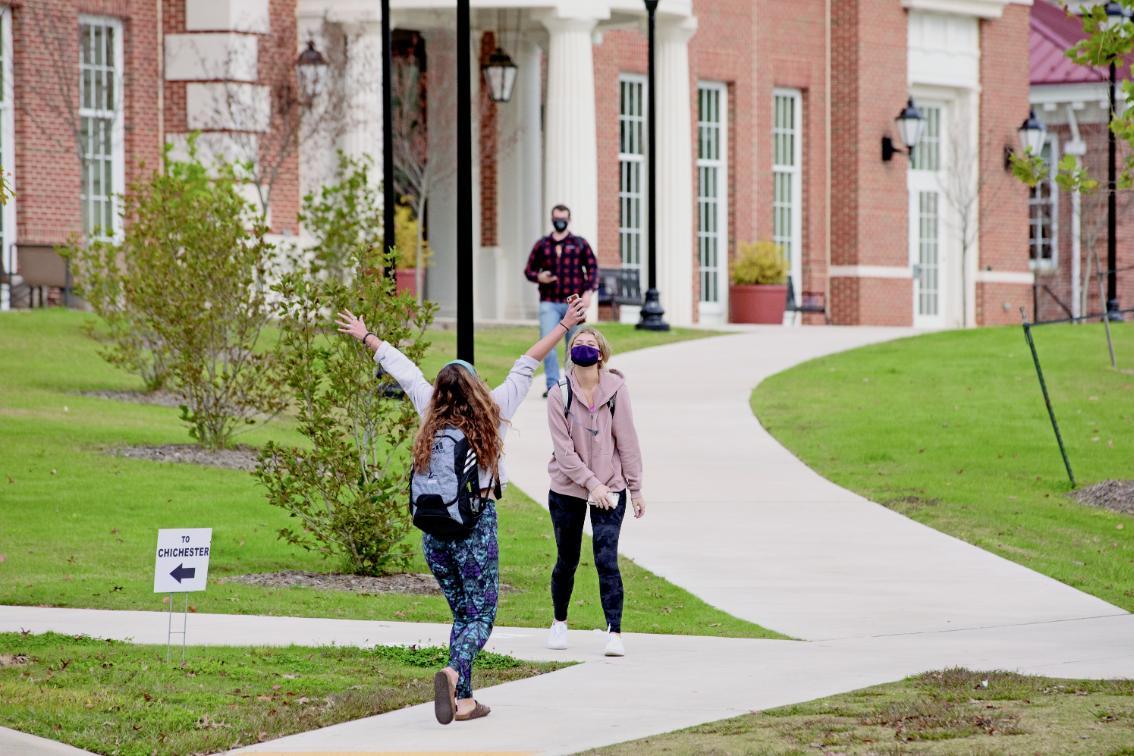
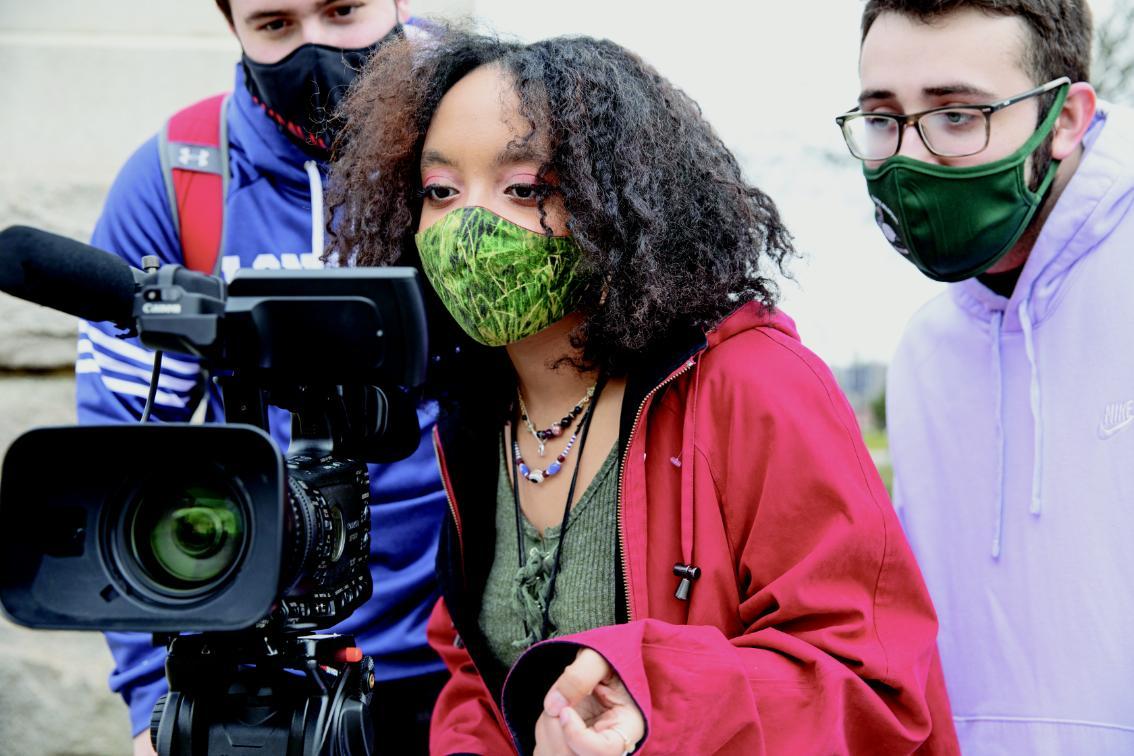
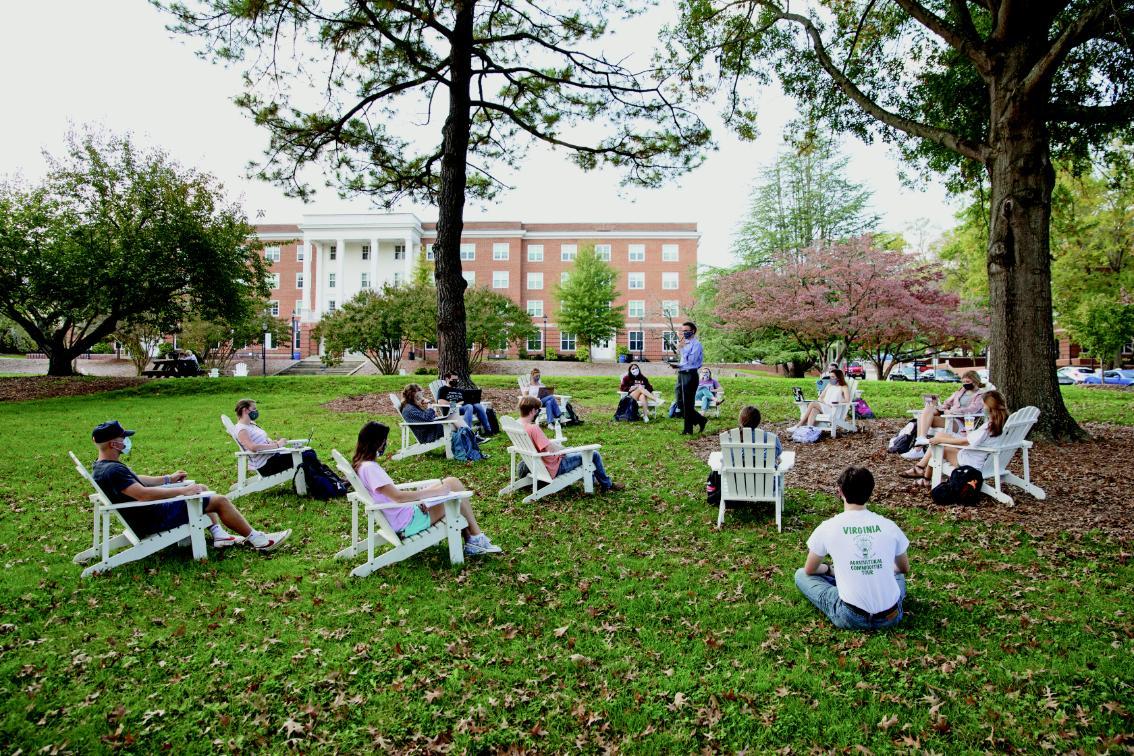
-1134x756.jpg)
-1134x756.jpg)
